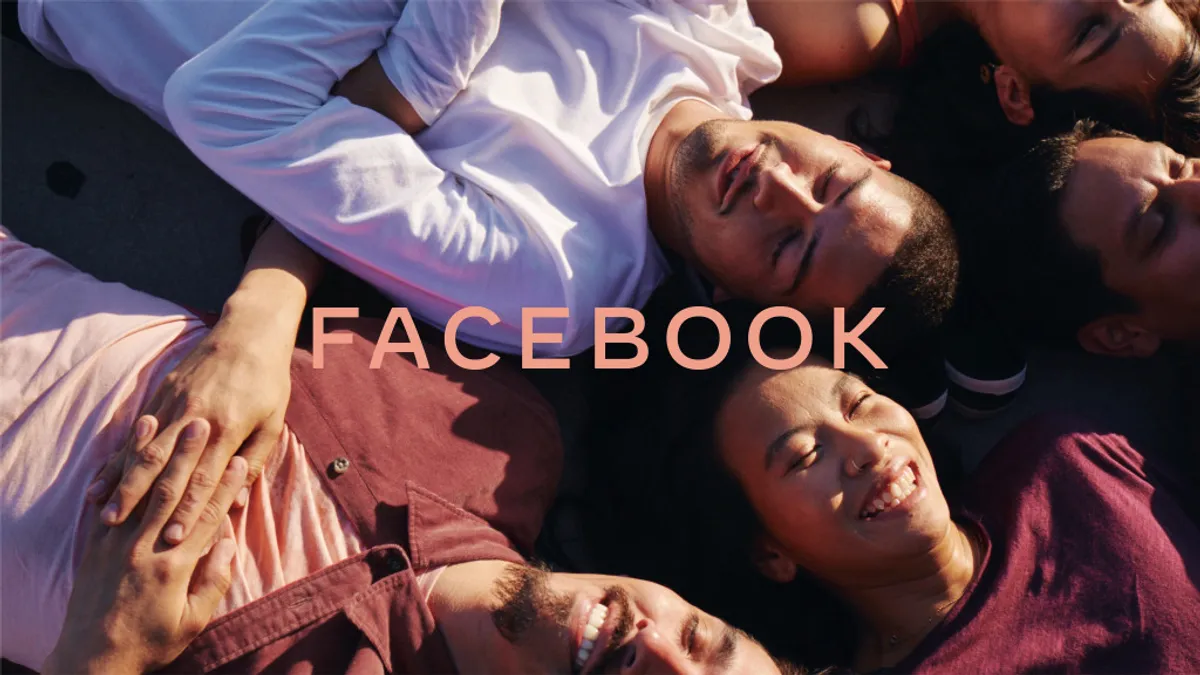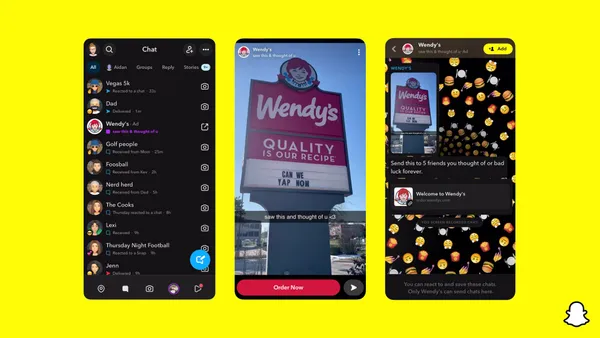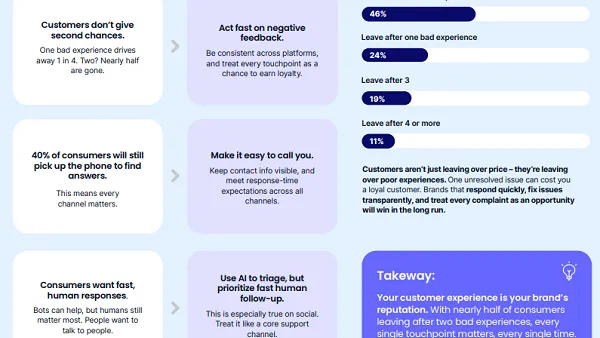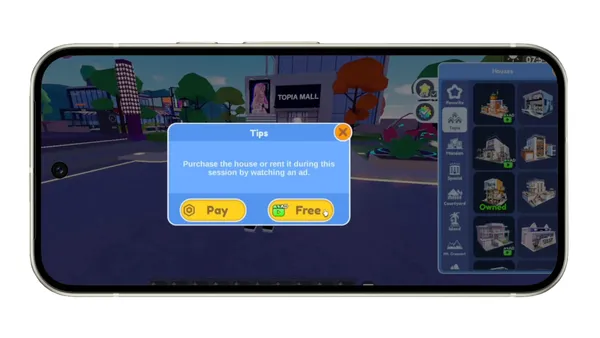Brief:
- Facebook yesterday introduced a corporate logo to unite its family of products, including its main social network, Instagram, WhatsApp, Oculus virtual reality (VR) platform, Portal smart displays and Calibra digital wallet, per a company announcement. The new logo comes as the social media behemoth faces scrutiny from antitrust authorities that may seek to undo its acquisitions of Instagram and WhatsApp.
- The all-caps corporate logo has a new font and color scheme to distinguish the parent company's marketing from the Facebook social network's logo. The company will incorporate the new logo through the "from Facebook" wording that began appearing in its apps, including Instagram and WhatsApp, in June.
- Facebook also plans to use the new logo in its upcoming marketing materials in the next few weeks, including a refreshed company website, CMO Antonio Lucio said in the announcement.
Insight:
Facebook's new logo aims to unify its branding within its corporate umbrella and provide more transparency of its ownership structure. That goal may work against the company as more people become aware of Facebook's widespread presence in digital media and antitrust scrutiny of tech giants grows.
Facebook's products dominate global rankings, with WhatsApp, Messenger, Instagram and the core Facebook app consistently appearing in the top five most downloaded apps, per Sensor Tower. However, only 29% of Americans were aware that Facebook owned Instagram and WhatsApp, per a Pew Research Center study — a percentage that's likely to grow as more people see the parent company's corporate logo more prominently displayed in the distinct apps.
New unified branding may sharpen criticism that the company is working to make its apps so inseparable that a possible breakup from Instagram and WhatsApp would be too difficult to manage. While the breakup would certainly be messy, it's not an insurmountable hurdle to regulators that would seek to restore more competition to the digital media marketplace and curb Facebook's power over what billions of people see online.
CEO Mark Zuckerberg last week said in an earnings call that the Federal Trade Commission most likely is focused on Facebook's $1 billion acquisition of Instagram, and warned that political pressures may hurt the company. Facebook in July confirmed the FTC was investigating the company, and scrutiny has grown since then. Law enforcement officials met in New York on Oct. 21 to discuss legal strategies they could pursue in an antitrust case against Facebook, unnamed sources told CNN. A day later, New York Attorney General Letitia James announced that 47 state attorneys general were investigating Facebook's possible anti-competitive practices.
So far, political issues haven't dented Facebook's sales growth, with ad revenue climbing 28% to $17.4 billion in Q3 from a year earlier. Facebook and Google, whose dominance in U.S. digital advertising has earned them the "duopoly" nickname, are expected to grow their market share to a record level in the next two years, per a revised forecast by researcher eMarketer. The firm yesterday raised its estimate of the duopoly's share of the U.S. digital ad market to 61.2% by 2021 from 58.7% previously after Facebook and Google reported strong Q3 growth.
Facebook's new corporate branding strategy differs from Google's in that the search giant in 2015 created an entirely new legal structure by introducing Alphabet as a holding company for its disparate businesses. Alphabet oversees Google, whose brands include YouTube and the Google Play app store, and separate a group of "other bets" that are experimenting with self-driving cars, artificial intelligence (AI), delivery drones, biotechnology and urban planning, among other uses for technology.














